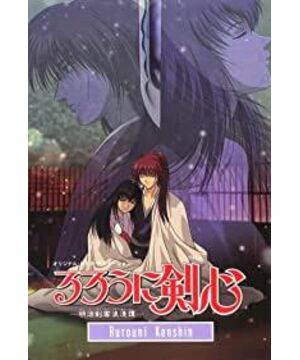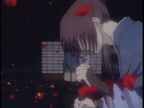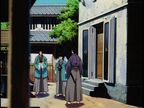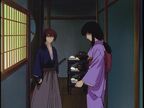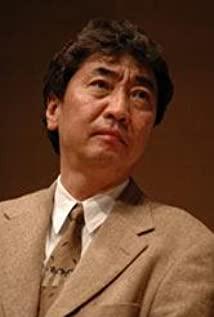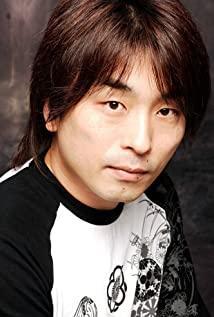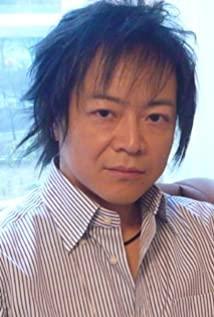Although I have a strong interest in Japanese culture, strictly speaking, I am not an anime fan, and I can only say that I am not unfamiliar with OST. If you don't count the growth period of children, the only animations that you have really watched when you grow up are "Ghost in the Shell", "Cowboy Bebop", "Insect Master", "Symphonic Lover's Dream" and "Rurouni Kenshin". Maybe it's because of the violence and repression. Generally speaking, I prefer the SF category of historical dark and bloody fighting, so let's just forget about the danmei and inspirational advice to BL. Hack, kill, fight, and it suits my appetite the most. As for "Rurouni Kenshin", I only love the reminiscence chapter, the star frost chapter, the new Kyoto chapter, etc., the style is too thin, not cold enough and cruel. The live-action version is even more unbearable. Sato Takeshi's appearance is too bloated, and the unkempt face is really detrimental to Kenshin's elegance and supernaturalness. But having said that, it is really difficult to find a real person to play Kenshin. You have to have a stern boy with eyebrows like swords and eyes like knives. It is best to have practiced flying swordsmanship. From the inside out, you must not be a fool. , but in this era full of diaosi, such a person, let alone an actor, is probably hard to find.
"Remembrance" unfolds in the era of turbulent mountains and rivers at the end of the Tokugawa period and "deadly ill". The two most important forces in the fall of the curtain are Satsuma and Changzhou, and Kenshin is a follower of Takayuki Kido (named Mr. Katsura in the play). In history, Gui Xiaogoro promoted the return of the book, abolished the domain and set up the county, and was called "the three heroes of the Meiji Restoration" together with Saigo Takamori and Okubo Toshitsu. Mr. Gui in the play was portrayed as a diligent emperor who cared about the country and the people, and was enlightened and loyal. ——“The flesh is exposed to Musashino, and the dead bones still sing the soul of Yamato”. I won’t talk more about history here. Historiography is my shortcoming, so let’s go straight to the topic. Jian Xin was summoned by the bloody "Gate of Childhood", with a deep obsession - "The people of the world are in dire straits, and many people are in grief because of the war. I can't ignore them and see death!" ——Bid farewell to the master and joined the Qibing team, and was attracted by Mr. Gui because of his superb swordsmanship: "I don't want to make high-sounding excuses, this is the act of killing, but to create a new world, you must destroy old things. Although it is a Dirty errands, but someone has to do it. For the sake of the new era, can you kill people?" As his master Kiyojuro Higu said: "To change this troubled world, it is inevitable to join one of the forces, that is, Said, will be exploited by power. What awaits you is a never-ending cannibalism in the name of various 'justices'." Mr. Gui made Jianxin bloody at the cost of ending his career as a swordsman. Since then, Jianxin has become the executioner of the Changzhou faction, a fifteen-year-old reformist. The young and mature Kenshin seems to guard a stupid belief in a profound way. After all, "there is no happiness in the world by killing people." Well, and you even entrust this work to others, you just follow your own words." Although he is burdened with "crazy justice", Feicun still does not appreciate the interest of "watching the cherry blossoms in the spring, the stars in the summer, the full moon in the autumn, and the first snow in the winter", but in comparison, his simple and naive way of saving the world However, the rank seems to be much higher than his historical prototype, which is one of the four thousand swordsmen at the end of the era, although he is full of poetry and books, he is capable of writing and martial arts, but he advocates the theory of seclusion and isolation.
Kenshin's sword-drawing technique involves probing the ground with his right foot and squatting with his left foot on the ground. He draws the sword from bottom to top, and slashes the opponent straight from the lower abdomen to the head. Teng Teng's sword-drawing studio is so handsome. In the year of "Tian Zhu", Jian Xin is still as clear as a mirror, spotless. The little boy innocently pursues his dream of saving the world by hoeing the strong and helping the weak. It seems foolish, but it is moving. In the sword, light and sword shadow, I met Yukiyo. The snow-white kimono and the blue umbrella with petals were splattered with blood. Drawing the Dao Zhai smelled the fragrance of white plums in the bloody rain, and licking the blood, the mad knife could not help falling to the ground, and the rain was even heavier... Before that, Kenshin had seen Yukiyo in the market, and the close-up of his eyes expressed the only tenderness in the heart of the ruthless Patozai. In the short time of Xiao Diwu, there are dark tides, and Yukiyo has always hidden the resentment of assassinating Jianxin to take revenge for Qingli, and Jianxin is completely unaware. I really like the interpretation of Yukiyo in this work. The animation is indeed much more expressive than the manga. Xuedai is sad but not hurt, happy but not promiscuous, candles, tears, daggers, brushes, hair, plain clothes, walking light and solemn, beautiful classically quiet, elegant and refined, like calamus in the rain of blood, exuding a pure fragrance . With Jian Xin's taciturn, sullen forbearance, cruel and cold-hearted, clear and decisive, it is a perfect match. Their pastoral life in Xiaoshan, where they left the dust and dirt, and the fleeting and quiet years in the chaotic world, seemed to be everyday but without losing the high-cold atmosphere, exuding a sense of depth and depth. Two people, one reserved and the other restrained, one with sin and one with hatred, seemed to be far away from the five turbidities of the world and the anger of people in the peaceful rural hut. The full moon in the autumn night, the ears of grain in the fields, the double cranes in the wooden house, the blood-colored setting sun, the snow-moon shock, the fire and the black hair... all accurately reflect the mood of the characters. Yukiyo, who dares to love and hate, is as tender as water and tough as steel, gradually turning from hatred to love. Falling in love with Kenshin made her transcend the rules of fate and worldly conscience on her identity. When Kiyosato was holding the phantom of a broken head and falling twigs, his inner conflict was extremely intense. The good times don't last long, and after a night of lingering, it is life and death. The cross wound is not only the mark of love, hatred, and hatred, but also the scar of the entire era. The bloody romance is really a cruel irony, reminding me of the words of "An Naiwu" Tatsumi: "We are all sinners".
Sometimes I think, the profound ending may be that Kenshin is also burned by the fire of cremating Xuedai, death does not have to be a pair of mandarin ducks with Yukiyo in the next life, the love of men and women in the torrent of the times is just a swaying leaf, but a sinner. Desires have since vanished, love and hatred have vanished, but it seems that nothing can escape the reincarnation of vain and ignorant; suspected. However, Jianxin did not self-immolate, nor did he destroy the world's feelings. He saw a monk, and realized that a single thought gave birth to twelve predestined relationships. His astonishing complex of joining the world made him fight again in the turbid world where the nameless arose and the knowledge was blazing. The clichés like ending the film, opening a new era, and the like are boring, and the ending makes the whole thing seem top-heavy.
The narration of the entire anime is very rhythmic, with one slack, ups and downs, and Takuya Iwasaki's sometimes hurried, sometimes soothing, sometimes lonely, sometimes gloomy, sometimes sad and sometimes silent soundtrack is the icing on the cake. The high level of camera movement and picture editing, as well as the subtlety of animation technology and symbolism, make it difficult for "Memories" to not be a masterpiece, although there are still many problems in the smoothness of actions. There is not a single redundant scene in the whole film, the dialogue is refined and appropriate, and the supporting roles are also very good. Whether it is Mr. Gui, Matsuji, Fan Zhuo, Takasugi, the proprietress of Xiaodiwu, or my favorite new writing group Mibu Wolves, all have wonderful performances. . It's worth revisiting.
View more about Rurouni Kenshin: Trust and Betrayal reviews


